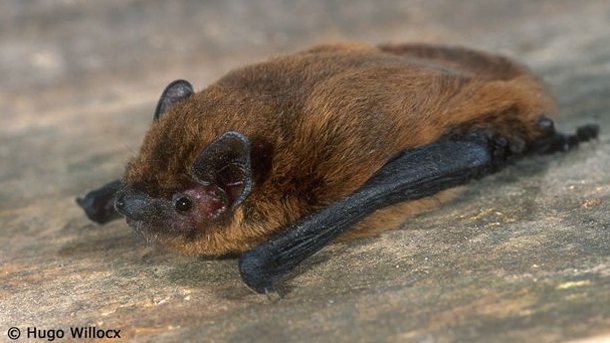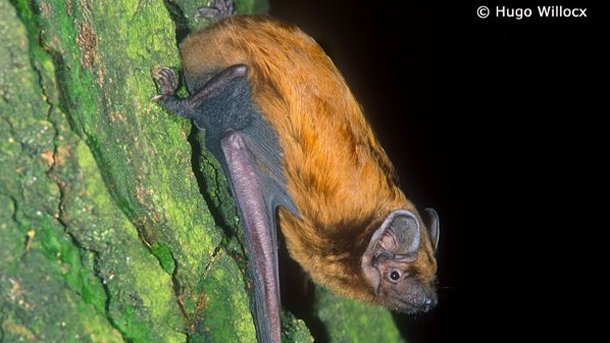For the past two weeks ten Bulgarian cities have marked on different days the European Bat Night - an initiative launched on the Old continent in 1990. Since 1997, the European Bat Night has been held under the auspices of the Agreement on the Conservation of Bats in Europe (EUROBATS ) and is being marked in more than 30 countries. The Old Continent is not particularly rich in bats, given that only 35 species of a total of over 1100 existing species on the planet are encountered here. Bulgaria, however, is home to 33 out of 35 European bat species, hence the great responsibility of our country to protect this small mammal.

Bats are actually mamalls, which may be surprising to many of us because people seem to know very little about this inconspicuous and somewhat neglected animal accustomed to live in complete darkness. This is the main goal of the European Bat Night – to make the species more popular to the general public and to help people overcome the negative attitude towards it accumulated over the centuries. And these creatures have existed on Earth for 55 million years now, or in other words, over 1 000 times longer than humans. And they have their role in maintaining the ecological balance in the animal world. A little pipistrelle, which weighs about 5 grams, eats 3 000 insects in a night and can consume 1 200 mosquitoes in one hour only! However, in some countries people deliberately import bats in areas with many mosquitoes as the most ecological means of exterminating them. These and many other interesting details were presented during the the European Bat Night held alternately in ten cities across Bulgaria, including Sofia and Plovdiv. "There was great interest in this initiative”, said for Radio Bulgaria Nelly Arabadjieva from Green Balkans environmental association, which is one of the main organizers of the event.

"There were crowds of people who had come to see the exposition and the booth of Green Balkans Association. The citizens of Plovdiv showed great in these winged mammals. There was a very nice exhibition located in the city park in which people got acquainted with many interesting facts from the life of bats. Then they could test their knowledge in an interesting quiz with prizes. Children had the chance to create a great work of art. On a long sheet of paper that covered much of an alley, 30 children painted scenes inspired by the life of bats. And they were given sweets in the shape of a bat. It turned into a small festival - colorful and very cheerful. I think we were able to change the attitude to bats of many people in a positive direction."
Why is Bulgaria the home of almost all bat species found in Europe? Because we have preserved intact those habitats that are preferred by bats, was the answer of Elena Stoeva, an expert on bats in Green Balkans Association.

"We have many habitats of international importance. Among them are some of the most important bat caves in Europe. We also possess an extensive array of pristine forests and important wetlands. Bulgaria as a whole has a key role for biodiversity conservation Europewide. Bats are animals that are found all around us. But there are some habitats that are really essential for their survival. These are century-old forests that have been almost become extinct now in Europe due to the intensive forestry in recent decades. And Bulgaria is among the very few countries that still have forests preserved in their natural forest species composition. Many important habitats for bats are also wetlands such as swamps, rivers and lakes. Much of the natural wetlands in Europe have also been destroyed over the centuries and in our country to a significantly lesser extent. And last but not least, we should mention that in Bulgaria there are important bat caves that are still slightly affected by human impact," Elena Stoeva from the Green Balkans Association told Radio Bulgaria on this year’s European Bat Night marked in Bulgaria.
Translated by Rossitsa Petcova
Photos: www.greenbalkans.org
Priceless Romanian ancient gold stolen from a museum in the Netherlands Three golden bracelets and a priceless helmet from the Romanian exhibition "Dacia! The Kingdom of Gold and Silver" were stolen from the Drents Museum in Assen, the..
In 2032, Bulgaria and Denmark will select their cities for the title of European Capital of Culture. The procedure will open in 2026 when the two countries will officially invite their cities to prepare their candidacies. The candidates must draw up..
The Eastern Rhodopes are one of the few places in Europe where the balance of nature has been restored almost to the state it was in two centuries ago. Here, ecosystems function naturally. In other words, animals and plants coexist in harmony without..
In 2032, Bulgaria and Denmark will select their cities for the title of European Capital of Culture. The procedure will open in 2026 when the two..
The Eastern Rhodopes are one of the few places in Europe where the balance of nature has been restored almost to the state it was in two centuries ago...
Priceless Romanian ancient gold stolen from a museum in the Netherlands Three golden bracelets and a priceless helmet from the Romanian exhibition..

+359 2 9336 661
